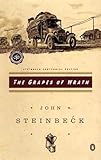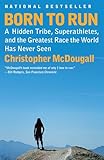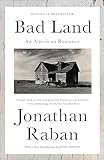In the summer of 2000, two friends and I embarked on an epic cross-country drive. In preparation for the journey, we rented a Dodge Caravan, stocked up on peanut butter, and debated where to go. Using a Rand McNally map book, I laid out our path in pen, drawing lines from campsite icon to campsite icon across erica and back. We planned to leave from Delaware, where I was a senior in college, in late June, and return in mid-August — in all, six weeks of whiskey-addled, open-skied adventure. For the quiet moments — of which there turned out to be few — I brought along a worn copy of The Grapes of Wrath. Like the Joads, we were also striving for California — but with more Led Zeppelin CDs in tow.
 That month and a half became one of the fullest periods of my life, with one exhilarating escapade after another: outracing tornadoes in Kansas, nearly freezing to death in Yosemite, close calls with bears in both Sequoia and Glacier National Parks. We hiked and camped and ate our peanut butter. With cheap snapshot cameras, we ran through dozens of rolls of film. From Seattle to Pittsburgh, we forswore bathing, a foul contest of wills. It was all very stupid and perfectly glorious. It was, as they say, a formative experience.
That month and a half became one of the fullest periods of my life, with one exhilarating escapade after another: outracing tornadoes in Kansas, nearly freezing to death in Yosemite, close calls with bears in both Sequoia and Glacier National Parks. We hiked and camped and ate our peanut butter. With cheap snapshot cameras, we ran through dozens of rolls of film. From Seattle to Pittsburgh, we forswore bathing, a foul contest of wills. It was all very stupid and perfectly glorious. It was, as they say, a formative experience.
Afterwards, we made a pact to do a similar expedition every year, but outside of a few days in West Virginia in 2001, our oath died on the vine. As I progressed through my 20s, though, I still thought of myself as the same daring moron who once pushed a minivan to 110 on a Montana interstate. My girlfriend and I would go on long drives just to see what we could see; we hiked with the same questing spirit I’d carried on my trip. Once, in New Jersey’s Pine Barrens, we became covered in deer ticks — and as we scraped them from our shins, laughing in horror beside our car, I had the feeling that, uncomfortable as I was, I remained on the proper track. You can’t get covered in bugs if you don’t enter the woods.


 As time went on, I began to read about people who, I flattered myself to think, had a similarly — if more pronounced — searching spirit. There was Percy Fawcett of The Lost City of Z, who rambled through the Amazon as if it were Central Park. And Into the Wild‘s Chris McCandless, whose fatal Alaskan trek was equally noble and misguided. I became a sucker for such narratives, subscribing to Outside magazine for its pieces on doomed hikers and wayward canoeists. Most know Christopher McDougall’s Born to Run for the creepy 10-toe running shoes it helped to popularize, but I was more taken by its description of Mexico’s Tarahumara and their daunting mountain races. To write Savage Harvest, about the 1961 disappearance of Michael Rockefeller, Carl Hoffman traveled to New Guinea — just as I would have done, I thought as I read. After all, I was pretty intrepid myself.
As time went on, I began to read about people who, I flattered myself to think, had a similarly — if more pronounced — searching spirit. There was Percy Fawcett of The Lost City of Z, who rambled through the Amazon as if it were Central Park. And Into the Wild‘s Chris McCandless, whose fatal Alaskan trek was equally noble and misguided. I became a sucker for such narratives, subscribing to Outside magazine for its pieces on doomed hikers and wayward canoeists. Most know Christopher McDougall’s Born to Run for the creepy 10-toe running shoes it helped to popularize, but I was more taken by its description of Mexico’s Tarahumara and their daunting mountain races. To write Savage Harvest, about the 1961 disappearance of Michael Rockefeller, Carl Hoffman traveled to New Guinea — just as I would have done, I thought as I read. After all, I was pretty intrepid myself.

 Except that I wasn’t; not anymore. I was now married to that girlfriend, and had become both a father and an eternally fatigued commuter. Any journey I now took was occurring inside my skull: instead of going on spontaneous road trips, I was reading Charles Portis’s Norwood. Instead of hiking until my feet bled, I was reading Bill Bryson’s A Walk in the Woods. Instead of tearing across Montana, I was reading Jonathan Raban’s Bad Land. I had outsourced the work of outdoor experience to various authors, my risk limited to paper cuts and coffee spills. It had happened slowly, imperceptibly, until the transformation was all but complete. The version of myself who “got out there and did things” had been replaced by a softer, safer, far more boring person.
Except that I wasn’t; not anymore. I was now married to that girlfriend, and had become both a father and an eternally fatigued commuter. Any journey I now took was occurring inside my skull: instead of going on spontaneous road trips, I was reading Charles Portis’s Norwood. Instead of hiking until my feet bled, I was reading Bill Bryson’s A Walk in the Woods. Instead of tearing across Montana, I was reading Jonathan Raban’s Bad Land. I had outsourced the work of outdoor experience to various authors, my risk limited to paper cuts and coffee spills. It had happened slowly, imperceptibly, until the transformation was all but complete. The version of myself who “got out there and did things” had been replaced by a softer, safer, far more boring person.

 In short, I was spending too much time reading about interesting people and almost no time being one — an insight that recently hit me wit depressing force. I’m not sure what spurred the revelation — perhaps it was the contrast between the solitude of reading and the chaos of what I read. Maybe it struck me that I’d just read two books about people surviving deadly cold (Crazy for the Storm, The Shining) and was, absurdly, preparing to read two more (The Revenant and Alone on the Ice). Whatever it was, I’d become unhealthily comfortable; to quote an old Radiohead song, I was now a pig in a cage on antibiotics — or, less dramatically, a guy in cozy slippers whose vitality had slipped away.
In short, I was spending too much time reading about interesting people and almost no time being one — an insight that recently hit me wit depressing force. I’m not sure what spurred the revelation — perhaps it was the contrast between the solitude of reading and the chaos of what I read. Maybe it struck me that I’d just read two books about people surviving deadly cold (Crazy for the Storm, The Shining) and was, absurdly, preparing to read two more (The Revenant and Alone on the Ice). Whatever it was, I’d become unhealthily comfortable; to quote an old Radiohead song, I was now a pig in a cage on antibiotics — or, less dramatically, a guy in cozy slippers whose vitality had slipped away.
 This suspicion was soon confirmed by a family hike — the first my wife and I had been on in years, despite the fact that the woods are a short drive from our house. Though we only walked for two hours or so, and the air was getting cold, the forest quietly filled a need that, in recent years, I had learned to ignore. We marveled at trees that intertwined like rope, gazed at a creek as if it were a national landmark. We inhaled, exhaled, looked for the paint blazes that marked our path. We were again away from everything, and it felt really fucking good.
This suspicion was soon confirmed by a family hike — the first my wife and I had been on in years, despite the fact that the woods are a short drive from our house. Though we only walked for two hours or so, and the air was getting cold, the forest quietly filled a need that, in recent years, I had learned to ignore. We marveled at trees that intertwined like rope, gazed at a creek as if it were a national landmark. We inhaled, exhaled, looked for the paint blazes that marked our path. We were again away from everything, and it felt really fucking good.
That was a month and a half ago, and that feeling — the recognition of some innate inner need — hasn’t faded; it now seems to burn within me, steady as a pilot light. I’ve resolved to reclaim myself — my old self, tick-stippled and chased by bears, a person who’d do most anything for the sake of doing it. In a way, it’s already happened; we’ve since gone on another such hike, and we’re planning a what-the-hell-let’s-just-go trip to Tennessee in the spring. Reading is an incredible thing, but it’s a poor substitute for life. I’m amazed, and embarrassed, that I’ve had to learn such an obvious lesson. Yes, adulthood is tiring, children will suck you dry, and it’s easy to stay inside. But I remember now: though I packed The Grapes of Wrath on that long-ago, six-week drive, I read almost none of it. And I didn’t miss it at all.
Image Credit: Wikimedia Commons.









